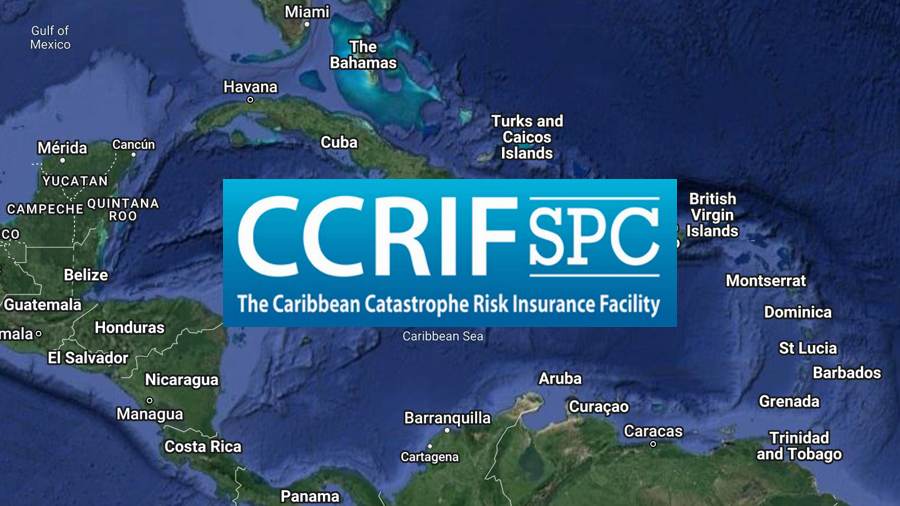Kepler Digitals is making strides toward revolutionizing the travel and asset management sectors. With a team of industry experts, the project is harnessing the power of decentralized finance to drive innovation and reshape traditional landscapes.
Join us as we explore insights from leaders Virginie Vacca, Julien Dersey, Yannick Beunardeau, and Pierre Beunardeau. Their visions highlight the potential of blockchain technology to redefine finance and bring transformative solutions across industries.
Our Panel
Virginie Vacca
Virginie Vacca’s foray into Kepler Digitals began with her robust background in traditional finance, where she gained significant exposure to various tech sectors, with industries ranging from aerospace and defense to travel technology and FinTech. Notably, during her tenure at Amadeus, she crossed paths with Yannick from Kepler Digitals and had the distinct pleasure of collaborating with him professionally.
As her career progressed, it became evident to Virginie that embracing blockchain and digital assets was a natural evolution. She recognized these innovations not only as a new asset class but also as transformative forces, poised to revolutionize not just traditional finance but also aviation and numerous other industries surrounding us.
Julien Dersey
Embarking on his journey in the startup world just a year ago, Julien Dersey assumed the role of Chief Product Officer at AtomBeam Technologies. Before this venture, he spent 13 to 14 years at Amadeus, where he collaborated with Yannick to establish a successful new business unit focused on airport technology. Their partnership began when Julien sought Yannick’s assistance, only to be met with a surprising offer of help in return, setting the stage for a fruitful collaboration.
In the time between his tenure at Amadeus and his current position, Julien gained valuable experience at a satellite company, where he led product development across various sectors, including aviation. He also spent five years at a major online marketplace, honing his skills in e-commerce. Additionally, he and his wife ran their own ecommerce site, achieving impressive growth over three years. With a strong engineering background and a wealth of experience in software development, Julien looks forward to his new role at Kepler Digitals, eager to explore the vast opportunities in blockchain technology and its applications.
Yannick Beunardeau
Yannick Beunardeau, the CEO of Kepler Digitals, reflected on his lifelong passion for aviation, noting that he felt as though he had been infused with “aviation DNA” from a young age. This deep-rooted connection led him to study engineering, specializing in aircraft design. Early in his career, he worked in the maintenance department of Air France, focusing on Boeing 737 and 747 aircraft. Subsequently, he transitioned to airport operations, where he recognized the need for improved technology integration as an operator managing various IT systems.
Years later, when he joined Amadeus, Yannick discovered a wealth of opportunities for innovation. His vision culminated in the establishment of a new business unit called Airport IT, which he successfully advocated for in 2012. In addition to his professional achievements, Yannick took immense pride in his son’s accomplishments in the Web 3.0 space, particularly with the creation of the Galileo Protocol.
Inspired by his achievements, Yannick spent countless nights brainstorming potential use cases for navigation technologies. This collaborative spirit led to the development of a whitepaper and fruitful discussions with former colleagues, including Julian and Virginie, who brought valuable marketplace and decentralized finance expertise to the team. With such a formidable group assembled, Yannick felt that they had created a dream team, ready to revolutionize aviation technology.
Pierre Beunardeau
As the CEO of the Galileo Protocol, Pierre Beunardeau spearheads efforts to create an innovative ecosystem aimed at redefining luxury asset management and valuation. His vision encompasses both B2B and B2C markets, targeting luxury brands and crypto users, as well as affluent consumers. Through this platform, Pierre seeks to transform how brands and consumers engage with valuable assets, leveraging the power of blockchain technology.
Additionally, he holds a strong conviction that every luxury asset deserves enhanced traceability, authenticity, accessibility, and liquidity. Therefore, he and his team set out to build a comprehensive FinTech platform designed to connect these crucial elements seamlessly. With a focus on innovation, Pierre aims to elevate the luxury experience, ensuring that valuable assets can be managed and exchanged with unprecedented transparency and efficiency.
Insights from Kepler Digitals’ Advisors Julien Dersey and Virginie Vacca
Pioneering Change in Aviation
Julien Dersey, Adviser to Kepler Digitals, emphasized the profound impact that blockchain could have on the aviation sector, particularly through innovative solutions designed for efficiency and speed. He recalled how traditional airport operations were encumbered by lengthy capital expenditure projects, where airlines often needed months to set up their infrastructure. Julien and his team revolutionized this model by introducing a Software as a Service (SaaS) solution that enabled airlines to become operational in just hours instead of months. This paradigm shift demonstrated how blockchain could streamline processes and foster new business models tailored to the evolving needs of the aviation industry.
In addition to operational improvements, Julien underscored the importance of data sharing in the aviation ecosystem. He recognized that airlines often hesitated to share data, fearing a loss of control. To counter this, he suggested that Kepler Digitals could develop platforms that facilitate secure data exchange, allowing airlines and other stakeholders to unlock value from their data. By building a framework that promotes transparency and trust, Julien believed Kepler could lead the way in transforming the aviation industry, ultimately creating a more efficient, customer-centric experience for travelers in the age of blockchain.
Bridging Traditional and Decentralized Finance
As the Financial Advisor and Investor Relations at Kepler Digitals, Virginie Vacca shared more details about her career journey. She began her career in military intelligence, gaining insights that allowed her to connect the dots between drone development and emerging technologies in civil aviation. Drawing on her extensive experience covering airlines, Virginie echoed Julien’s sentiments about the slow evolution of the aviation industry. She noted that while the sector had taken nearly 60 years to adopt Software as a Service (SaaS), the transition had only recently gained momentum. Today, most critical systems operated under this model, allowing airlines to cut costs and enhance efficiency.
She also delved into the world of decentralized finance (DeFi), which she had observed gaining traction since its explosive growth in 2021. The idea of “DeFi Legos” fascinated her, where users could leverage their assets — whether stablecoins, Bitcoin, or tokenized real-world assets — across various platforms for borrowing, trading, and investment. Virginie highlighted how this tokenization could bridge traditional finance and blockchain, making real assets more accessible, tradable, and liquid. With major institutional players like BlackRock already invested in this space, she believed the opportunities were boundless, paving the way for innovative financial solutions that could redefine the aviation sector and beyond.
Market Opportunities in Aviation: Insights from Kepler Digitals
Ryan from Genfinity inquired with the panel about the market opportunities for blockchain technology within the aviation sector, particularly in light of upcoming green climate initiatives and regulatory benchmarks set for 2025, 2030, and 2050. Essentially, he aimed to uncover specific examples of how blockchain could be applied effectively in the near future to enhance the aviation industry.
Yannick Beunardeau, CEO of Kepler Digitals, offered insights into the burgeoning world of electric aviation and the unique challenges it faced. Initially, he highlighted two significant short-term opportunities. First, he noted the impending rise of electric aviation, emphasizing that the certification of aircraft was underway. The first flights were set for 2025, with industry growth projected to soar at double or even triple-digit rates shortly thereafter.
Key players in this arena included renowned manufacturers such as Joby and Archer in the U.S., and Lilium and Volocopter in Europe. These companies required cutting-edge technology from the outset, presenting a timely opportunity for innovation. Meanwhile, Kepler was actively developing a minimum viable product (MVP) in collaboration with Dragonflight Pad — a mini electric vertical takeoff and landing (eVTOL) platform that they tokenized, laying the groundwork for this exciting future.
Ensuring Authenticity and Embracing Growth in Aviation with Blockchain
Furthermore, Yannick addressed a pressing issue that was becoming increasingly critical: ensuring the authenticity of aircraft components and certifications. He recalled recent controversies surrounding major manufacturers like Boeing, highlighting the necessity of establishing traceability for aircraft parts. In classical aviation, verifying the authenticity of qualifications, such as pilot diplomas, posed its own challenges. Yannick shared a striking example from a conversation with a German acquaintance who mentioned the prevalence of fraudulent medical certifications. During peak summer months, when the aviation industry needed to hire thousands of workers, verifying qualifications became essential. He expressed confidence that their technology could streamline these processes via tokenization, addressing what current IT systems struggled to manage effectively.
Looking to the future, Yannick painted a vivid picture of an industry poised for exponential growth. He cited the current number of air travelers — over 4 billion annually — and projected this figure to double by 2040. This anticipated increase would exacerbate existing challenges, making the need for innovative solutions even more pressing. He emphasized that blockchain technology could multiply the number of use cases and problems to be solved, which aligned with their mission at Kepler. He expressed a desire for more competitors in the blockchain aviation space, welcoming others to join them in addressing these vast opportunities.
The Kepler Digitals Journey and Galileo Protocol Collaboration
Yannick reflected on the journey of establishing Kepler Digitals. He remarked on the initial skepticism they faced — many had doubted the feasibility of their cloud-based airport solutions. Yet, their commitment to innovation drove them forward, regardless of the naysayers. He noted that a fresh wave of investors, some entirely new to blockchain, had begun to recognize the potential of aviation solutions. This influx of support invigorated the project, bringing in not just seasoned professionals but also younger generations eager to invest in a sector that resonated with them.
In addition, he discussed the synergy between retail and aviation, noting that airports derive a significant portion of their income from retail sales. With the Galileo Marketplace, Kepler Digitals aimed to enhance the authenticity of luxury goods sold at airports, such as high-end fashion items. This integration of blockchain technology would create a seamless experience for travelers, who often engage in both air travel and shopping.
Pierre Beunardeau, Co-Founder and CEO of Galileo, shared his insights on the transformative potential of their tokenization platform. He described how Galileo represented an entry point for brands into a realm of transparency and asset management. By enabling brands to create digital passports and certificates that tracked each asset, he believed this innovation would strengthen customer trust while reducing losses due to counterfeiting.
In addition, Pierre highlighted their integration of Galileo Pay, which allowed brands to accept cryptocurrency as a payment method. This diversification attracted a tech-savvy audience eager for new purchasing experiences. He drew a compelling parallel between the travel journey and the synergies between Galileo and Kepler, emphasizing that while the journey often began at the airport, it actually started much earlier. Together, they envisioned an integrated ecosystem where every step provided an enhanced experience through Web3 technology.
A Look to the Future
Looking to the future, Pierre expressed excitement about the promise of blockchain, crypto, and tokenized real-world assets (RWA). He viewed these developments as foundational to the evolving economy and interactions among individuals. He asserted that blockchain represented a technological revolution alongside a philosophical one initiated by Satoshi Nakamoto. It empowered individuals by eliminating intermediaries, reducing reliance on institutions, and granting control over data and value.
He concluded with a strong conviction that they were merely scratching the surface of this revolution. Beyond speculation, cryptocurrency offered a tangible alternative to traditional finance, enabling instant payments, reduced fees, and greater accessibility. As he noted, they were talking about banking the unbanked, and he observed that this shift was accelerating, especially with major players like BlackRock entering the market. Pierre believed that soon, using cryptocurrency to buy a plane ticket, invest in luxury assets, or participate in the decentralized economy would become as natural as using a credit card today.
Also chiming in, Yannick shared exciting updates. In addition to Kepler Digitals’ ICO, they have a focus on their MVPs (Minimum Viable Products), including a project focused on the tokenization of diplomas. This initiative aimed to enhance trust in qualifications for ground personnel, anticipating its launch by the end of the year. He also hinted at two major partnerships in the baggage and eVTOL sectors, which promised to make a substantial impact on the industry.
Reflecting on his three decades of experience, Yannick acknowledged the value of his extensive network, which allowed him to navigate entry points into major manufacturers like Boeing and Airbus. He expressed optimism about the future, buoyed by the enthusiasm and passion of his team, as they aimed to redefine aviation through innovative technology.
Disclaimer
*Disclaimer: News content provided by Genfinity is intended solely for informational purposes. While we strive to deliver accurate and up-to-date information, we do not offer financial or legal advice of any kind. Readers are encouraged to conduct their own research and consult with qualified professionals before making any financial or legal decisions. Genfinity disclaims any responsibility for actions taken based on the information presented in our articles. Our commitment is to share knowledge, foster discussion, and contribute to a better understanding of the topics covered in our articles. We advise our readers to exercise caution and diligence when seeking information or making decisions based on the content we provide.
















)



 English (US) ·
English (US) ·